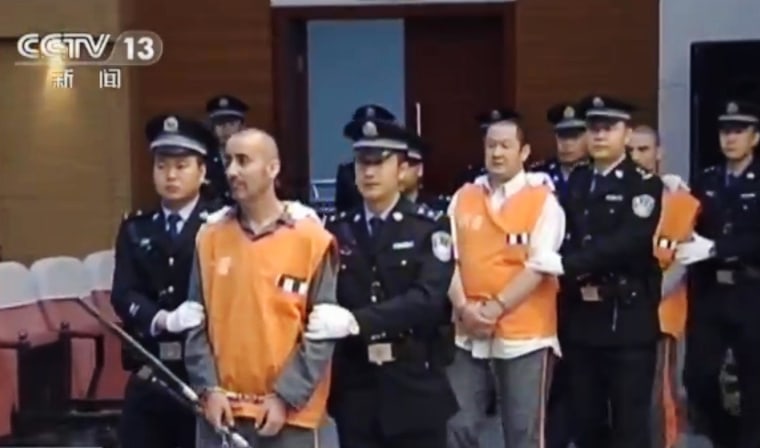BEIJING – Three people were sentenced to death over last year's car attack near Beijing’s iconic Tiananmen Square on Monday, an incident China's government has blamed on Islamist militants.
A fourth was given a life sentence, while four others received jail terms ranging from five to 20 years, according to live footage of the trial in the province of Xinjiang that ran on state-run broadcaster CCTV.

In the October 28 attack, a man drove an SUV through a crowded tourist area before coming to a stop in front of Tiananmen Gate at the entrance to the famed Forbidden City, where the vehicle burst into flames. A Chinese and Filipino tourist were killed, along with the SUV's driver, his wife and mother-in-law.
The dramatic incident was the first in recent memory in the country’s capital, thrusting the issue of Uighur separatists into the national spotlight.
Authorities were quick to blame the attack on separatists from restive Xinjiang province and quickly rounded up the eight accused and brought terrorism charges against them in the days that followed.
The sentencing comes after an uptick in violence in Xinjiang. Last month, two SUVs drove through a crowded morning market as explosives were thrown out of the vehicles at pedestrians. The attack left 43 dead, including four suspected attackers. A fifth suspect was captured later.
Authorities in Beijing have long contended that much of these terror attacks are inspired and organized by extremists with connections to terror groups outside of China. Uighur activists counter that resistance is fueled by homegrown feelings of economic disenfranchisement and cultural prejudice at the hands of China’s Han majority.